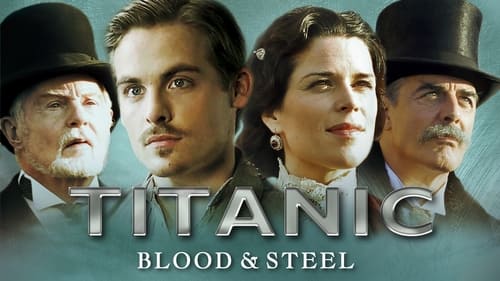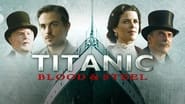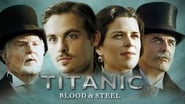Ensofter
Overrated and overhyped
Aneesa Wardle
The story, direction, characters, and writing/dialogue is akin to taking a tranquilizer shot to the neck, but everything else was so well done.
Nicole
I enjoyed watching this film and would recommend other to give it a try , (as I am) but this movie, although enjoyable to watch due to the better than average acting fails to add anything new to its storyline that is all too familiar to these types of movies.
Marva
It is an exhilarating, distressing, funny and profound film, with one of the more memorable film scores in years,
J Kent Layton
As a maritime and Titanic author and historian, I was quite interested to see this production, as it focused on the construction of the legendary liner and came at things from a unique perspective. Unfortunately, I am beyond disappointed (appalled would be a more apt word) by the historical errors that made their way into the miniseries.I have been working my way through the 12-part miniseries, trying desperately not to shred the arms of my chair or grinding my teeth to powder in so doing. Although the production might be an enjoyable piece if it were purely fictional, the history of the Titanic became a tragic, jumbled mess in this production.In some respects I found that it captured the period. However even there the effect was not complete; for example, the "jazz" music in the early-episode society scenes was about 10-15 years too premature, and that's something that anyone could get right.Was it poor research that caused this historical monstrosity? Apparently not. Why? Because of how many little details they apparently had easy access to and saw fit to include in the production (i.e., the number of passengers on Olympic's crossing where she tangled with the Hawke, the design of the Great Gantry, the fact that the riveters were paid by the rivet, the way the rivet seals were tested, the name of the British Board of Trade inspector, etc.). Meanwhile, the production included an overwhelming number of serious historical errors, many of which were easier to "get right" than the aforementioned factoids.Included in this list of grievous technical and historical mistakes are:* The "fact" that J. P. Morgan bankrolled and exercised great influence in the design and construction of the vessels. White Star paid for the vessels, and Ismay and White Star, rather than Morgan directly, had primary influence in the design and construction; * The steel issues, which is an older theory which has really been addressed and is blown entirely out of proportion in this production; * The blueprints for the Titanic shown from the opening credits through every episode, and which are actually, in every instance I noticed, of the Lusitania; * The slip that the Titanic was built on in the show is actually Olympic's slip; * The "fact" that the Olympic/Hawke collision (September 20, 1911) took place long before the launch of the Titanic (May 31, 1911) (???!!!); * The term "unsinkable" (or "practically unsinkable") is dreamed up and applied primarily to Titanic by the fictional character after the collision with the Hawke, when in reality it was introduced by White Star publicity and period Trade journals such as The Shipbuilder during construction of the two liners, and was applied to both equally. (Coincidentally, the special number of The Shipbuilder in which the term appeared is seen in the series long before Muir supposedly dreamed up the term); * The damage to the Olympic appears on the forward-port quarter of the hull, rather than the aft-starboard quarter; * Ismay saying that the Titanic would be 'much larger' than the Olympic; * Ismay didn't even have a speaking part, I don't believe, until the third episode; * The timing of any discussion regarding the possibilities of a double hull would have been back around 1907-1908 and applied to both ships, and would not have been applied solely to Titanic after the collision between the Olympic and the Hawke (in the end, a double-bottom was adopted for each); * The complete out-of-character, irritated, gruff behavior of Thomas Andrews throughout much of the first half of the series; * The worries within the yard that Titanic was just "too big" (the Germans were already starting work on the Imperator, which was still larger); * BOT Inspector Francis Carruthers was on site virtually every day of construction, yet he is not seen - until what, the fifth episode? - when he is lethargically tapping a couple of rivets. The implication is that Carruthers and the BOT exercised no real authority or oversight during construction, when in reality the original documentation and correspondence shows that they did not always see 'eye-to-eye' and had to work together to reach satisfactory results for both; * The concept that Harland & Wolff paid an unusually small amount of money to laborers (for the period, mind you) or were extraordinarily ungenerous in paying out benefits to families of those who were injured or killed in their yard (again, for the period). The record of payout benefits given to injured workers or to the families of those killed during construction of the two ships is still available and is actually quite high for the period.The list of egregious historical blunders just goes on and on. They are quite shocking in this series, especially since someone involved with the production/screenplay writing so clearly had access to little factoids that they saw fit to include. It was so badly done that I began to see in the fictional Muir character shades of the German Second Officer from the Nazi propaganda film, where he was the sole voice of reason warning everyone that the ship was doomed.If one even bothers to watch this miniseries, don't take anything in it as fact unless it is checked against leading research on the subject. In my view, this was a completely missed opportunity.
bobnewbie2
This mini-series is a fabricated piece of garbage. Production values are high, but the plot and background stories are substandard. The historic inaccuracies are too many to list. I only have 1,00 words. But this series is basically a soap opera with a ship as the backdrop. It has very little to do with Titanic, and more to do with post Victorian romance. Interspersed between the romance are stories about labor disputes that are inaccurately portrayed using contemporary values. It is an insult to the victims of the Titanic and their memory. It is an insult to the viewer's intelligence. Time would be better spent watching Spartacus or some other historically inaccurate soap opera,
Daithi O Buitigh
Historically this is completely inaccurate - James Larkin organised the Irish Transport and General Workers Union not the 'Dock Workers (also he didn't have a beard). Belfast was organised by James Connolly.The scenery is completely wrong and bears no resemblance to anywhere in Belfast - it's pure Dublin/County Wicklow. I do know what the general area around Harland and Wolff looked like in the 1950s (and it was much the same as in 1912) and it bore no resemblance at all to that shown. The working class housing was completely unlike that shown - all they had to do was go to the Folk Museum and film in a reconstructed street of the period - it's there.The accents are mostly incorrect, the RIC uniforms are wrong, both in colour and general appearance.Whoever did the 'research' was obviously unconcerned with anything like accuracy
kajsagumman
I am a Titanic enthusiast and have seen endless documentaries and read a lot of books, also before James movie - which I of course loved;-)So I was quite excited about these series, showing in Denmark before many other countries. It just finished last Sunday. But after 12 Sundays and 12 hours of my life watching, I really do feel it all was a bit of an anticlimax. There really is none of the romantic storytelling that otherwise is shown in Titanic movies and series. People are shown as they are, and as they probably was - and it is not very pretty. They are poor, angry, desperate and bitter. The management at White Star and Harland & Wulf are hung up with politics and money and although Lord Pirrie and Andrews comes off sort of sympathetic - they are also full of faults and not 100% likable. I always romanticized about Andrews being a good guy. Not even Mark Muir, the main character, is 100% likable. He is suppose to be good hearted and with high morals - but I don't know if it is too much or if it is just his "non passionate" acting where he always seems stiff that makes you not really connect and really sympathize with him. For example you never really feel the love between him and Sofia. They talk stiffly and politely with each other all the time and there is nothing but troubles constantly. You can't figure out what he is thinking at any point or why he does what he does.Also all the workers and other people around, they are just so bitter and complaining and there just does not seem to be any hope anywhere. The only person I kind of liked was Lord Pirrie, but he also eventually gives up and goes down with exhaustion. So no hope there either. So it was a bit hard to sympathize with any character in the series I thought. I kind of missed what you saw in James C Titanic - that they are poor and everything - yes - but they still have hope. And they find happiness in love or relationships or dreams. The ones going to America are more shown as "giving up on Belfast" then taking action for something better. Also I never feel that Titanic is a character in the movie either. She does not seem to be portrayed as the ship of dreams or hope. She is just another ship and it all gets corrupted but politics and money. Some things are interesting historically - for example Andrews discussing the amount of lifeboats and if she should have a double hull and such. But there is not much of that. There is not much of the actual building and designing either. Why they did as they did, why they chose those restaurants etc. Mostly just some stuff about the steel which is a bit boring. For example in the last episode there is a 4 sec sequence about how the band ended up on the ship, why wasn't there more about that kind of things? Also the test run she did doesn't get any specific mention except some chattering between Andrews and the management. That seems to be an interesting thing to get excited about.But the worst part was really after watching it all after all that time, and it ends up with Titanic just sailing off. And all the main characters are on board. And it really does feel like a slap in the face.I get the point that you are probably suppose to think "all those people and their stories, all going off to a better life and it is all going to be destroyed". But it is just not enough. I just didn't feel that, I just thought it was super annoying. I didn't sympathize that much with them and just wanted to know for the record who the F died and what happened?I think they should have given the last episode to the actual voyage and the series should have ended in New York at the statue of Liberty and you should have gotten to see who lived and who died. How Pirrie and Morgan reacted on the news, and what lessons where learned. And see in those peoples eyes how they just know that everything is going to change after this. That would have been a good ending.





